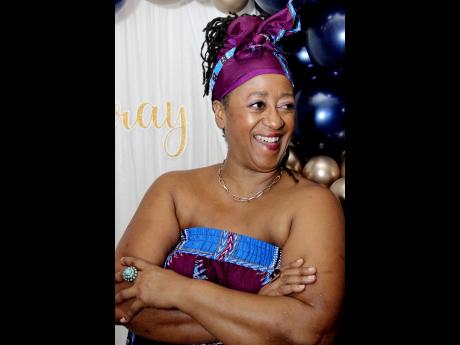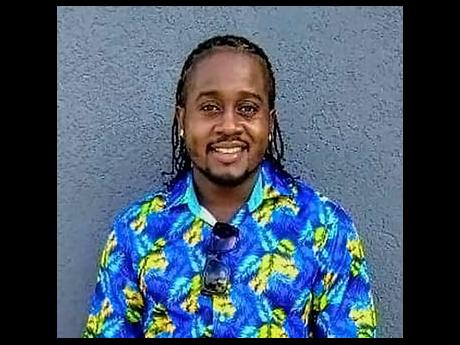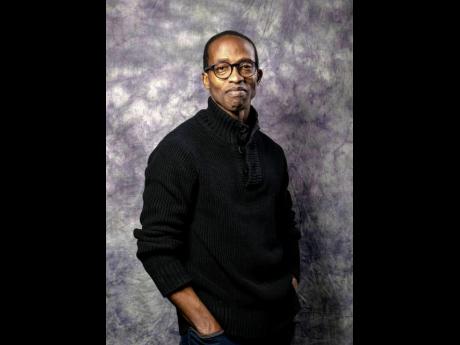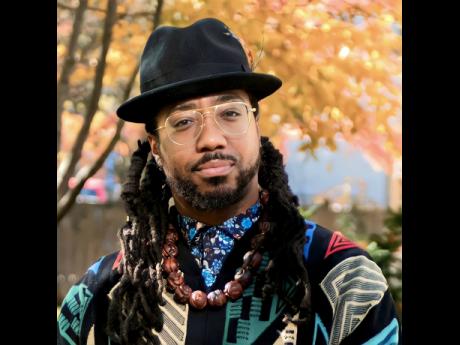Montreal exhibition to showcase rich history, vibrant tapestry of black community life
TORONTO: A new initiative in Montreal, Canada will shine light on black life in Quebec in an upcoming exhibition during February – Black History Month – and will make a virtual reality tour of all the places Marcus Garvey visited there accessible worldwide on all digital platforms.
Pat Dillon-Moore, executive director and curator of the Jamaica Association Arts Centre, known as JAM Arts Centre, said the exhibition titled, ‘When Big Man Talk’, which officially opens on February 3, will spotlight the artistic narratives of four outstanding black men – Garfield Morgan, Daniel Saintiche, Anthony McLennon, and Quentin VerCetty – whose work include photography, painting, textiles, and Virtual Reality (VR). Morgan, McLennon and VerCetty are of Jamaican heritage, and Saintiche, a veteran photographer, is of Haitian descent.
Morgan, a graduate of Edna Manley College of the Visual and Performing Arts, who lived in Montreal from 2018, recently moved to Edmonton, Alberta, where he is the artist in residence at Hartcourt House. VerCetty, an award-winning visual storyteller, art educator, and graduate of OCAD University, will create the virtual reality component focusing on Garvey’s time in Canada. He recently sculpted the commemorative bust of Lincoln Alexander, Ontario’s first black lieutenant governor, which was unveiled at Queen’s Park on January 21.
McLennon discovered his passion for the arts in Kingston, Jamaica and at the age of seven years unearthed the world of drawing while attending Pembroke Hall Basic School. Eight years later, he realised that he possessed an innate gift for painting.
Dillon-Moore said the exhibition includes a meditative piece, the beauty of blackness in another, “a whimsical piece with that moment of feeling free”, a section that calls to the ancestors, and photo exhibit highlights community togetherness of the past which among other things, brought African American Muhammad Ali to the city.
“There are pictures of life that speak to the Pan African vision of some of the 1970s visionaries,” said the curator, who expressed particular delight that the film, “African Redemption: The Life and Legacy of Marcus Garvey” by filmmaker Roy T. Anderson will be featured on January 31 in partnership with the UNIA and Union United Church.
VISUAL CHRONICLES
The centre, which was launched in July 2023, is a new platform through which people may engage with the association. It is described as a creative space for veteran and up- and-coming Anglophone, Francophone and Allophone black artists to create in and to showcase their works.
The JAM Arts Centre executive director believes the programme will help to dispel the belief that some persons in Quebec hold that black people ‘just got there’, by showing the rich history of figures, like Garvey, who early on inspired UNIA chapters throughout many cities in Canada, including Montreal.
Founded by Marcus Garvey in Kingston, Jamaica in 1914, the Universal Negro Improvement Association (UNIA), was part of a global movement to unite, empower, and improve the lives of people of African descent.
“From its headquarters in Harlem, New York, the UNIA expanded rapidly across Canada, with approximately 5,000 members in 32 divisions by the early 1920s. The first opened in Montréal, where the UNIA’s Liberty Hall was an important centre for education, economic, social, and cultural activities. The vast majority of Canadian members were West Indian immigrants, who brought a strong pan-African consciousness to the leadership of the UNIA,” notes a citation by Parks Canada Directory of Federal Heritage Designations.
“When Big Man Talk” incorporates elements sourced from the archives of photographer, Daniel Saintiche, whose collection of nearly 5000 black-and-white stills document the vibrant tapestry of black community life dating back to the early 1970s. These photos serve as visual chronicles, highlighting the resilience and contributions of black Canadians who have shaped Montreal’s cultural landscape.
The multifaceted exhibition aims to commemorate history, as well as to spark conversations and reflections, celebrating the diverse narratives that have shaped Montreal’s black community. Organisers want people to join them on an immersive journey through art, history, and cultural legacy as they honour the richness and resilience of the black experience in Quebec and Canada.
From February 3 to 10, the exhibit will be held at Gallerie Lucie Michel and then move to the famed Little Burgundy quarter in the UNIA Hall building from February 11 to 14. The activities will end on February 24 at the Oscar Peterson Hall with a focus on money.




